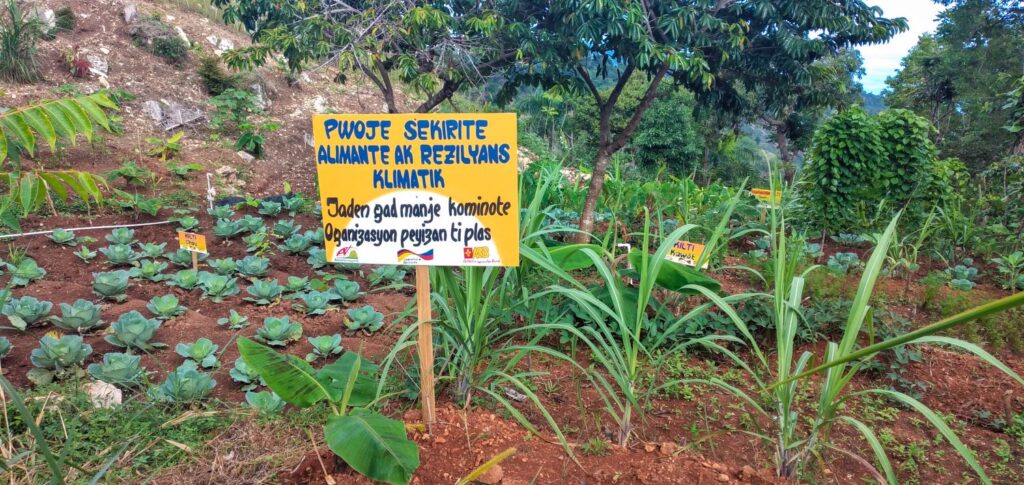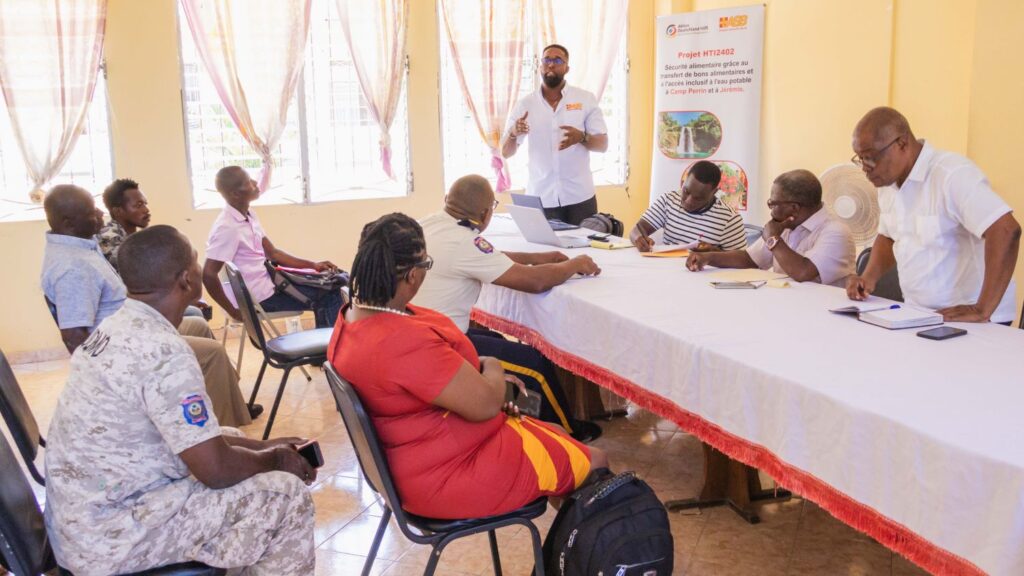20 beekeepers from several communal sections of Tiburon were trained in modern methods over 4 days as part of the “Ecological resilience in the Grand Bois National Natural Park” project. The training is part of the community development component of the project.
From Monday 31 May to Thursday 3 June, around twenty beekeepers used to producing honey using traditional methods were introduced to modern beekeeping practices during a training course at Sevré as part of the ecological resilience project implemented by ASB in collaboration with its partners FéODTI and SAH. This activity follows 4 socio-economic workshops focusing on moringa processing, beekeeping, maize, and castor processing. These workshops were followed by a feedback day during which the participants and the heads of the organizations chose beekeeping as the first option as an alternative solution for sustainable economic development. This option will be reinforced with the reforestation of melliferous species.
New economic alternatives
The aim of these workshops, with 20 participants each, was to identify income-generating activities to enable the inhabitants of the park and its buffer zones to find economic alternatives to the unbridled cutting down of trees in the Grand Bois National Nature Park. With inadequate household incomes, unemployment, and a lack of infrastructure and services in the area, local residents are finding that cutting down trees is a solution to their lack of resources.
Hence the importance of this training session for the Tiburon community. Twenty beekeepers have been selected and are now being trained to take better advantage of the opportunity to earn higher incomes. Agricultural technician and beekeeping specialist Mitho Laguerre, the trainer, was accompanied by agronomist Lohier Virgile, field coordinator of the project for the Audubon Society of Haiti, who believes that this training will enable the beekeepers to double their yields since they are now able to master modern techniques, recognize the various diseases affecting bees and be able to treat them. For specialist Laguerre, this knowledge is essential if they are to make a profit from the honey trade, which has great economic, nutritional, and health potential. At the end of the 4-day training course, a practical session was held with the participants to help them apply what they had learned in theory in their own apiaries.
This ecological resilience project, run jointly by the Fédération des organizations pour le développement de Tiburon and AUDUBON Haïti, with advisory support from ASB and funding from BMZ, began in November last year and will run until July 2021.






